Anpassungsfähigkeit und Resilienz des Finanzsystems
Diese Forschungsgruppe untersucht kritische Aspekte der Anpassungsfähigkeit und Widerstandsfähigkeit von Finanzsystemen. Sie analysiert die Auswirkungen von Naturkatastrophen auf Finanzsysteme, die Auswirkungen politischer Präferenzen für die grüne Transformation und die Bedeutung von Kultur in den Volkswirtschaften.
Forschungscluster
Finanzresilienz und RegulierungIhr Kontakt

- Abteilung Finanzmärkte
PROJEKTE
08.2022 ‐ 07.2025
OVERHANG: Schuldenüberhang und grüne Investitionen – die Rolle von Banken für den klimafreundlichen Umgang mit emissionsintensiven Anlagenvermögen
Bundesministerium für Bildung und Forschung (BMBF)
Ziel von OVERHANG ist es, die Rolle von Banken für den klimafreundlichen Umgang mit emissionsintensiven Anlagevermögen zu untersuchen. Hierdurch sollen politikrelevante Erkenntnisse zu Finanzregulierung, staatlich kontrollierter Kreditvergabe und Finanzstabilität identifiziert sowie eine Sensibilisierung der verschuldeten Akteurinnen und Akteuren erreicht werden.
Das Projekt wird vom Bundesministerium für Bildung und Forschung (BMBF) finanziert.
01.2015 ‐ 12.2019
Interactions between Bank-specific Risk and Macroeconomic Performance
Deutsche Forschungsgemeinschaft (DFG)
07.2016 ‐ 12.2018
Relationship Lenders and Unorthodox Monetary Policy: Investment, Employment, and Resource Reallocation Effects
Leibniz-Gemeinschaft
We combine a number of unique and proprietary data sources to measure the impact of relationship lenders and unconventional monetary policy during and after the European sovereign debt crisis on the real economy. Establishing systematic links between different research data centers (Forschungsdatenzentren, FDZ) and central banks with detailed micro-level information on both financial and real activity is the stand-alone proposition of our proposal. The main objective is to permit the identification of causal effects, or their absence, regarding which policies were conducive to mitigate financial shocks and stimulate real economic activities, such as employment, investment, or the closure of plants.
Referierte Publikationen
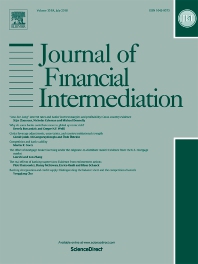
The Disciplining Effect of Supervisory Scrutiny in the EU-wide Stress Test
in: Journal of Financial Intermediation, January 2023
Abstract
Relying on confidential supervisory data related to the 2016 EU-wide stress test, this paper presents novel empirical evidence that supervisory scrutiny associated to stress testing has a disciplining effect on bank risk. We find that banks that participated in the 2016 EU-wide stress test subsequently reduced their credit risk relative to banks that were not part of this exercise. Relying on new metrics for supervisory scrutiny that measure the quantity, potential impact, and duration of interactions between banks and supervisors during the stress test, we find that the disciplining effect is stronger for banks subject to more intrusive supervisory scrutiny during the exercise. We also find that a strong risk management culture is a prerequisite for the supervisory scrutiny to be effective. Finally, we show that a similar disciplining effect is not exerted neither by higher capital charges nor by more transparency and related market discipline induced by the stress test.

Corporate Culture and Firm Value: Evidence from Crisis
in: Journal of Banking and Finance, January 2023
Abstract
Based on the Competing Values Framework (CVF), we score 10-K text to measure company culture in four types (collaborative, controlling, competitive, and creative) and examine its role in firm stability. We find that firms with higher controlling culture fared significantly better during the 2008–09 crisis. Firms with stronger controlling culture experienced fewer layoffs, less negative asset growth, greater debt issuance, and increased access to credit-line facilities during the crisis. The positive effect of the controlling culture is stronger among the financially-constrained firms. Overall, the controlling culture improves firm stability through greater support from capital providers.
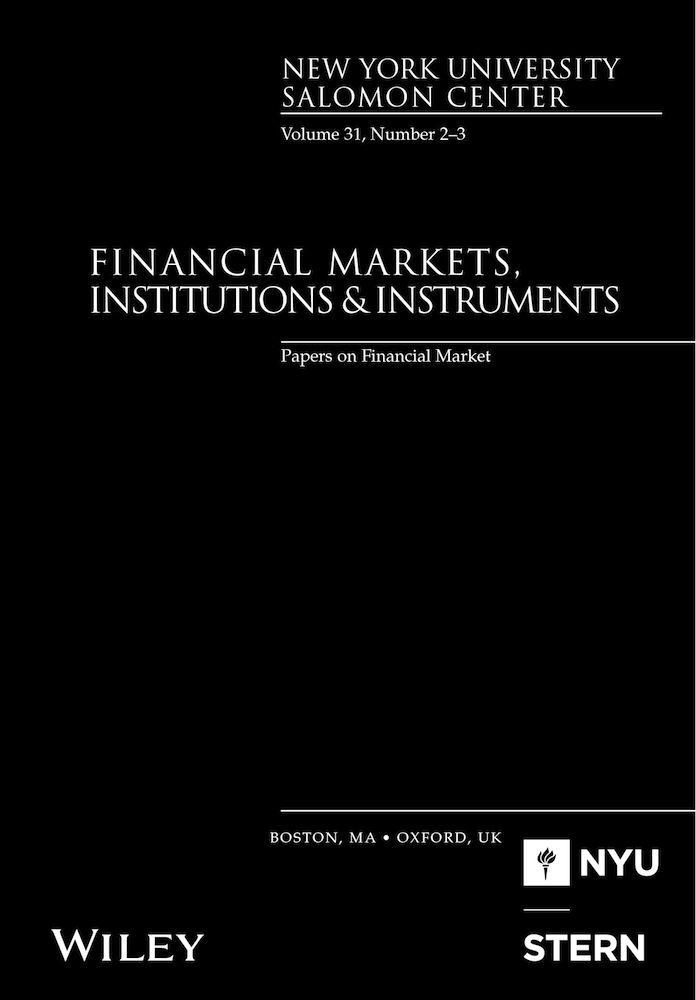
Environmental Reputational Risk, Negative Media Attention and Financial Performance
in: Financial Markets, Institutions and Instruments, Nr. 4, 2022
Abstract
Tracing negative media attention, this paper investigates the effect of reputational risk on firm value. Decomposing reputational damage into environmental, social and corporate-governance dimensions, it reports that environmental reputational risk has the most significant negative effect on price earnings, i.e., firms exposed to environmental risk are likely to be priced at a discount or charged a higher risk premium when discounting future earnings.

The Impact of Financial Transaction Taxes on Stock Markets: Short-Run Effects, Long-Run Effects, and Reallocation of Trading Activity
in: National Tax Journal, Nr. 3, 2022
Abstract
We investigate the French 2012 financial transaction tax (FTT) and find robust evidence for anticipation effects before the implementation date. Controlling for short-run effects, we only find weak evidence for a long-run reduction in trading activity. Thus, the main impact of the French FTT on trading activity is short-run. In line with liquidity clientele effects, we find a more potent effect for low-liquidity stocks and a reallocation of trading to high-liquidity stocks from the Supplemental Liquidity Provider (SLP) program. Finally, we find weak evidence for a persistent volatility reduction but no indication of a significant FTT impact on price efficiency.

Productivity, Managers’ Social Connections and the Financial Crisis
in: Journal of Banking and Finance, August 2022
Abstract
This paper investigates whether managers’ personal connections help corporate productivity to recover after a negative economic shock. Leveraging the heterogeneity in the severity of the financial crisis across different sectors, the paper reports that (i) the financial crisis had a negative effect on within-firm productivity, (ii) the effect was long-lasting and persistent, supporting a productivity-hysteresis hypothesis, and (iii) managers’ personal connections allowed corporations to recover from this productivity slowdown. Among the possible mechanisms, we show that connected managers operating in affected sectors foster productivity recovery through higher input cost efficiency and better access to the credit market, as well as more efficient use of labour and capital.
Arbeitspapiere

Capital Requirements, Market Structure, and Heterogeneous Banks
in: IWH Discussion Papers, Nr. 15, 2022
Abstract
Bank regulators interfere with the efficient allocation of resources for the sake of financial stability. Based on this trade-off, I compare how different capital requirements affect default probabilities and the allocation of market shares across heterogeneous banks. In the model, banks‘ productivity determines their optimal strategy in oligopolistic markets. Higher productivity gives banks higher profit margins that lower their default risk. Hence, capital requirements indirectly aiming at high-productivity banks are less effective. They also bear a distortionary cost: Because incumbents increase interest rates, new entrants with low productivity are attracted and thus average productivity in the banking market decreases.

Covered Bonds and Bank Portfolio Rebalancing
in: Norges Bank Working Papers, Nr. 6, 2021
Abstract
We use administrative and supervisory data at the bank and loan level to investigate the impact of the introduction of covered bonds on the composition of bank balance sheets and bank risk. Covered bonds, despite being collateralized by mortgages, lead to a shift in bank lending from mortgages to corporate loans. Young and low-rated firms in particular receive more credit, suggesting that overall credit risk increases. At the same time, we find that total balance sheet liquidity increases. We identify the channel in a theoretical model and provide empirical evidence: Banks with low initial liquidity and banks with sufficiently high risk-adjusted return on firm lending drive the results.
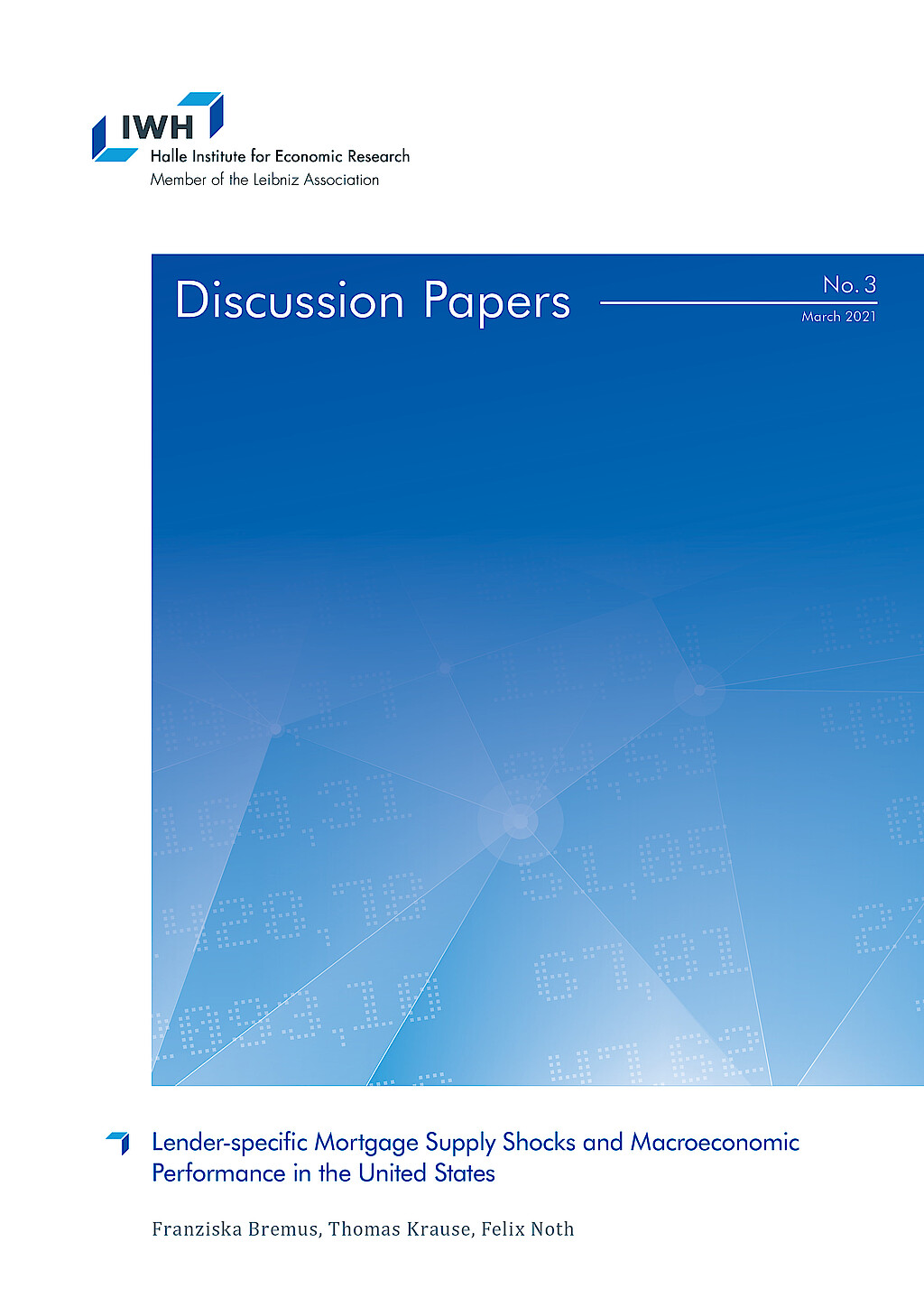
Lender-specific Mortgage Supply Shocks and Macroeconomic Performance in the United States
in: IWH Discussion Papers, Nr. 3, 2021
Abstract
This paper provides evidence for the propagation of idiosyncratic mortgage supply shocks to the macroeconomy. Based on micro-level data from the Home Mortgage Disclosure Act for the 1990-2016 period, our results suggest that lender-specific mortgage supply shocks affect aggregate mortgage, house price, and employment dynamics at the regional level. The larger the idiosyncratic shocks to newly issued mortgages, the stronger are mortgage, house price, and employment growth. While shocks at the level of shadow banks significantly affect mortgage and house price dynamics, too, they do not matter much for employment.
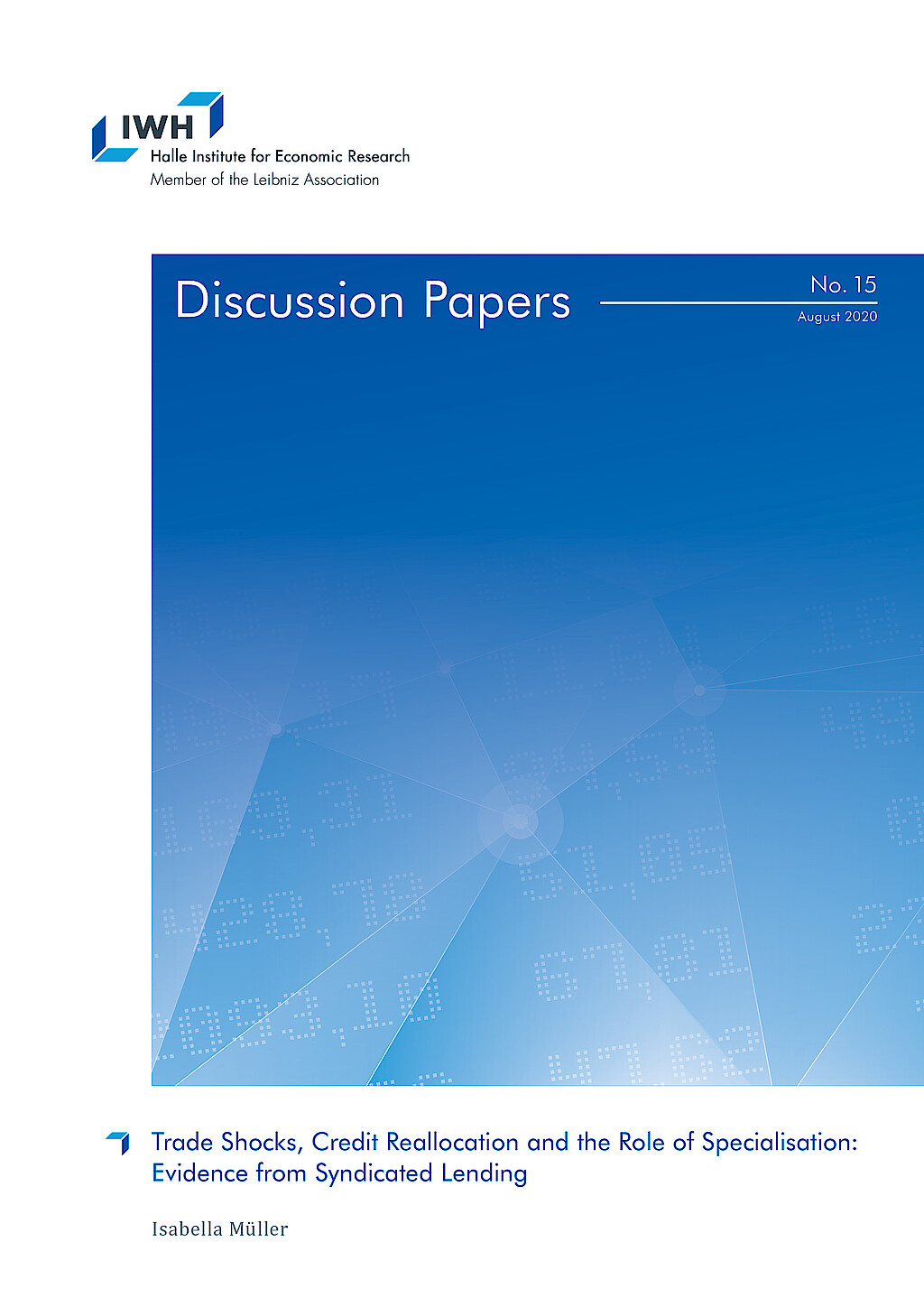
Trade Shocks, Credit Reallocation and the Role of Specialisation: Evidence from Syndicated Lending
in: IWH Discussion Papers, Nr. 15, 2020
Abstract
This paper provides evidence that banks cut lending to US borrowers as a consequence of a trade shock. This adverse reaction is stronger for banks with higher ex-ante lending to US industries hit by the trade shock. Importantly, I document large heterogeneity in banks‘ reaction depending on their sectoral specialisation. Banks shield industries in which they are specialised in and at the same time reduce the availability of credit to industries they are not specialised in. The latter is driven by low-capital banks and lending to firms that are themselves hit by the trade shock. Banks‘ adjustments have adverse real effects.
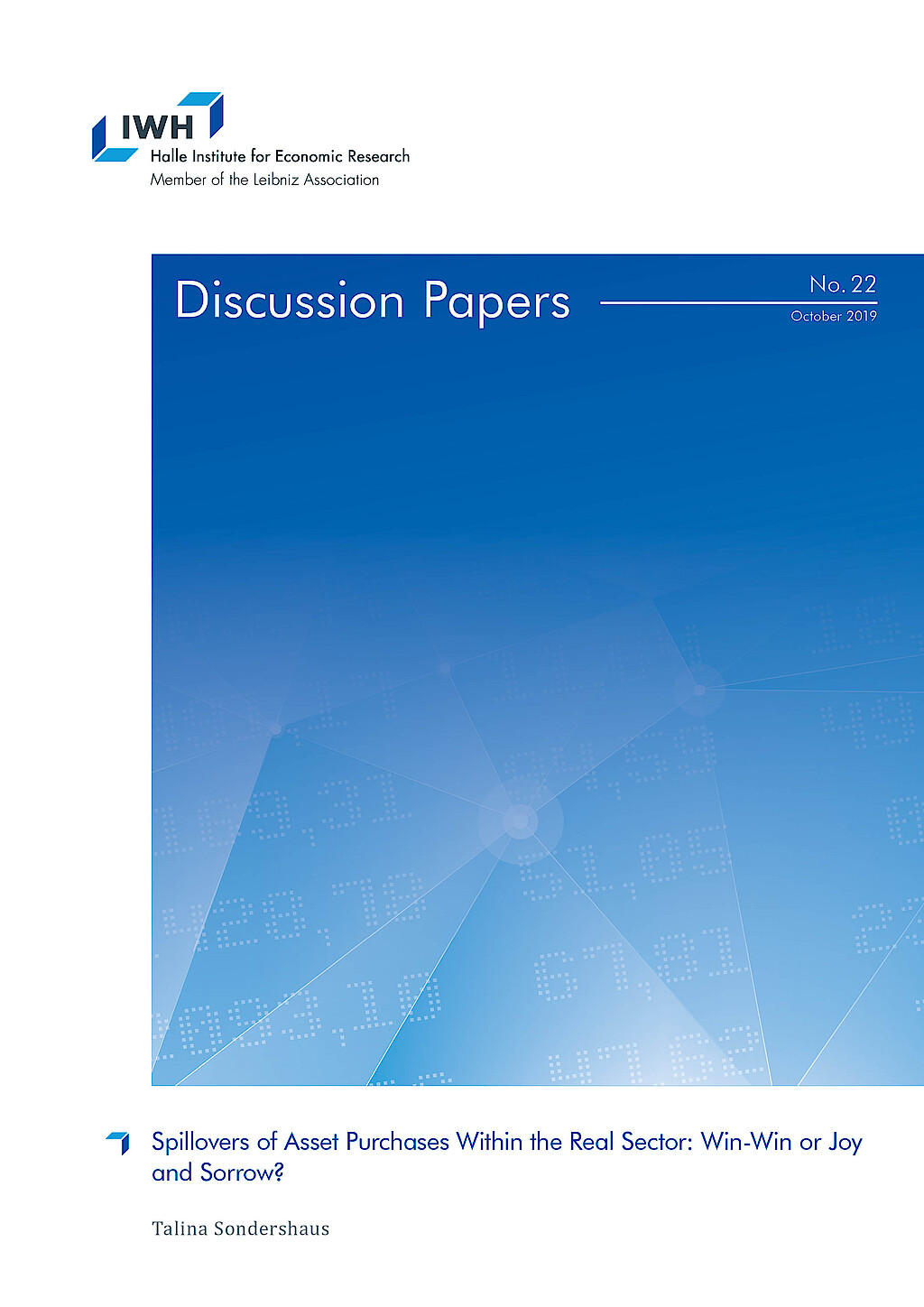
Spillovers of Asset Purchases Within the Real Sector: Win-Win or Joy and Sorrow?
in: IWH Discussion Papers, Nr. 22, 2019
Abstract
Events which have an adverse or positive effect on some firms can disseminate through the economy to firms which are not directly affected. By exploiting the first large sovereign bond purchase programme of the ECB, this paper investigates whether more lending to some firms spill over to firms in the surroundings of direct beneficiaries. Firms operating in the same industry and region invest less and reduce employment. The paper shows the importance to consider spillover effects when assessing unconventional monetary policies: Differences between treatment and control groups can be entirely attributed to negative effects on the control group.



















